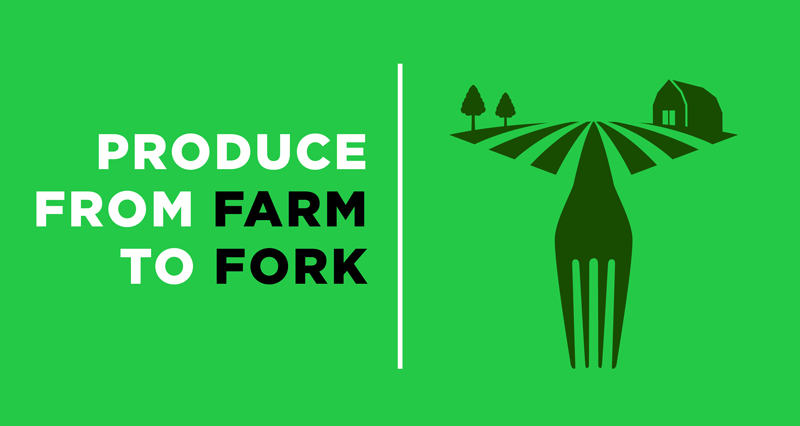As temperatures rise and days get longer, shippers begin gearing up for a busy produce season. Spring through early summer marks a time of tightened capacity, increased rates and scheduling constraints even if you aren’t in the produce industry. This is especially the case for companies shipping refrigerated products.
Produce Season
Produce season in the U.S. typically begins in February and continues through July. The largest volume of fruits and vegetables are harvested and shipped to food manufacturers, grocery stores and other vendors across the country during this time. Growing and harvesting kick off in Mexico and the U.S. begins to receive an influx of produce imports by February. The produce wave moves to the Southeast, southern Texas and the Rio Grande Valley, and southern California in late March. It continues to move north as temperatures rise.
Produce Season Rates
Demand for transportation rises while available capacity shrinks as a result of increased crop volumes and time-sensitivity involved in shipping fruits and vegetables. Shippers pay higher rates to secure refrigerated trucks, which are highly sought after.
Spot market freight volume typically rises about 30% in the spring and peaks in May. This shift sets the tone for other modes as well. In response to higher refrigerated capacity demand, dry van carriers and intermodal services experience seasonal demands that relate to shipment capacity and rate increases.
Safe Transportation
Produce is sensitive freight due to various factors. The process of transporting items could become risky if carriers fail to use guidelines. However, there is no substitute for safety when dealing with produce and other food items.
Think about what makes produce so inviting at the grocery store. Most people would say it’s the appearance of the produce. Proper transportation and on-time pickup and delivery are the main factors in maintaining quality appearance along with overall freshness.
The Food Modernization Safety Act (FMSA) focuses on maintaining food safety while transporting produce. The act, under the direction of the Food and Drug Administration (FDA), requires vehicles transporting food to adhere to strict standards. The goal is to prevent illness due to contaminated food.
The FMSA implemented the following transportation requirements:
- Vehicles must be clean to prevent contamination.
- Products must be kept at a safe temperature and separated from other items.
- Carriers must complete proper training.
- Documentation of compliance for up to 12 months.
Shippers looking to secure capacity for produce loads should verify that the carrier is compliant with FMSA. Ensuring that carriers hauling produce are capable of the job saves time and money.
Delivering a bad load of produce doesn’t fare well for anyone involved. Keeping the product safe for consumption is the shipper’s primary interest. The trucking company wants to provide quality service. It’s essential that the shipper and 3PL form a business relationship. The 3PL and the shipper should discuss pertinent information about the freight on a regular basis to maintain freshness and safety.
Produce Sales
Few people are thinking about the industry and what it takes to ship fresh as they select produce at the market. Organic fruits and vegetables generated $16.5 billion in sales in 2017 according to the Organic Trade Association (OTA).
For shoppers, fresh often translates to healthy. Consumers adopting healthier lifestyles often make fresh produce a key part of meals and snacks. As a result, 3PLs continue to work hard to get fresh produce on a truck headed for stores and markets.
Healthy Lifestyles
Recent trends show more people are paying close attention to what they eat. Today, the push to find healthier food translates into more people looking down the produce aisle. This is great news as it means people are eating healthier and striving to take care of themselves and their families.
More produce shipments need to be available to keep up with the increasing demand. Today’s families are looking for a healthy assortment of fresh fruits and vegetables to make it safely to our tables. Fortunately, 3PLs and carriers across the nation will continue working hard to keep the food flowing from farms to forks.
###
The England Logistics Full Truckload division offers a range of services for companies of all sizes. Dedicated team members are available day and night to offer solutions and assistance with all logistical needs. Regardless of the transportation mode, our market and seasonal specialists provide flexible shipping solutions and are committed to helping every step of the way.



